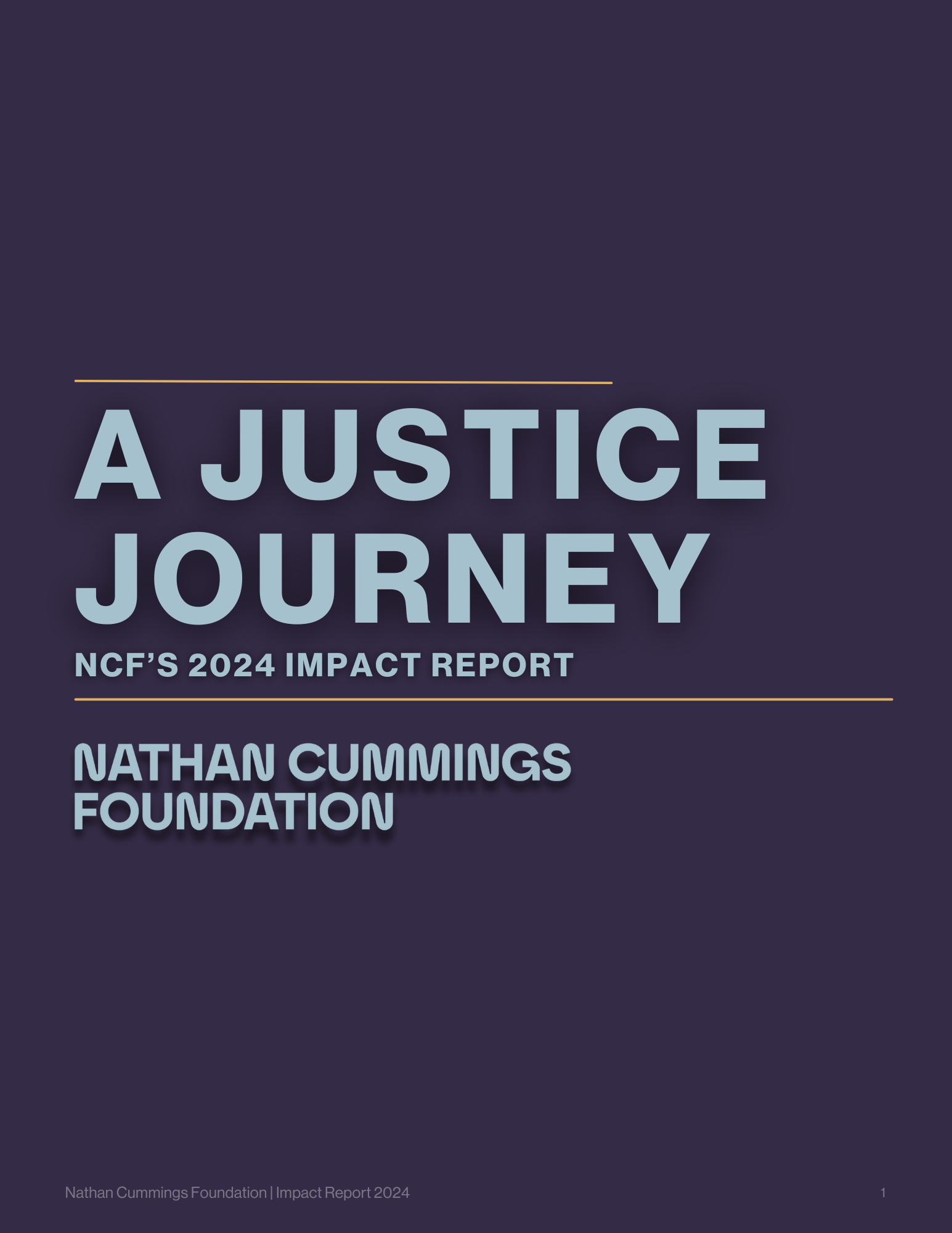2019 Joan Bavaria Award Winner Laura Campos’ Remarks at Ceres Conference
Nathan Cummings Foundation’s Laura Campos was awarded the 2019 Joan Bavaria Award for her leadership on sustainability. Below are her full remarks from the Ceres Conference, where she accepted the award.
Thank you, Ceres and Trillium Asset Management, for naming me the winner of the 2019 Joan Bavaria Award. It’s incredibly humbling, both in light of Joan’s extraordinary achievements and because of past recipients like Sister Pat Daly, Tim Smith, Bob Massie and Rich Ferlato, all of whom I’ve admired for years.
I’ve been incredibly lucky to spend the past decade and a half at the Nathan Cummings Foundation, which, with the support of our board, pioneered the use of active ownership strategies to advance programmatic goals while helping to protect the long-term value of the companies that make up our endowment. I’m proud to say that our board recently took the bold step of committing to align all of the Foundation’s assets with its mission. I’m also proud to say that as the Director of the Foundation’s Corporate & Political Accountability work, I’ve been empowered to direct grant dollars to support efforts to ensure that capital markets temper the unfettered pursuit of profits with concern for both people and planet.
Like those who give this award and the foundation I work for, I firmly believe that capital markets must balance economic prosperity with social and environmental concerns. Doing so has repeatedly been shown to be not just the right thing to do, but the profitable thing to do over the longer term.
Of course, we’re hardly unique in this view.
The CEO of the world’s largest asset manager has called on the chief executives of public companies to exert leadership on urgent social challenges. In doing so, he observed that, “Companies that fulfill their purpose and responsibilities to stakeholders reap rewards over the long-term. Companies that ignore them stumble and fail.”
This last point is vital. Companies that focus solely on short-term profits while ignoring critical issues like climate change, racial justice and inequality will fail. The American public wants action on these critical issues, and they increasingly think that the CEOs of large corporations have a responsibility to take a stand on them. In other words, they recognize that the investors and NGOs in this room can’t respond effectively to environmental and social challenges on their own. Corporations must not obstruct progress; they must join us in fighting for it.
Fortunately, some companies, many of them represented in this room today, already are. Multiple companies now have ambitious renewable energy targets, thanks in part to Ceres’ work. Efforts led by the Climate Majority Project have helped encourage companies to link executive compensation to progress on greenhouse gas emission reduction goals. Work led by members of the Interfaith Center of Corporate Responsibility has helped to move companies away from financing private prisons and toward better monitoring of their supply chains for prison and diversion program labor. We need more efforts like these.
But we know that it’s not just companies that will falter if environmental and social risks are externalized and ignored.
It’s increasingly clear that capitalism itself is threatened by growing inequality, racial inequities and unchecked climate change. Polls show that an increasing number of young Americans prefer socialism to capitalism. Bedrock concepts like the consumer welfare standard and shareholder primacy, which have underpinned our economic system for the past 40+ years, are now recognized as drivers of some of our biggest economic, social and environmental problems and are actively being rethought. Even ardent supporters of capitalism are calling for reform, with the founder of the world’s largest hedge fund recently saying that capitalism must evolve or die.
If we are to reform capitalism, head off catastrophic climate change and address inequality, we must do more than tinker around the edges. At a time when there’s growing recognition that capitalism as currently practiced is no longer working and that our market system must be fundamentally changed, Joan Bavaria’s work shows us the way forward. As Ceres, the Global Reporting Initiative, Trillium and so many other efforts Joan touched have long recognized, capital markets must balance economic prosperity with concern for society and the environment. Doing so is fundamental to capitalism’s continued survival and to ours.
Thank you.
Laura Campos
Director of Corporate and Political Accountability

